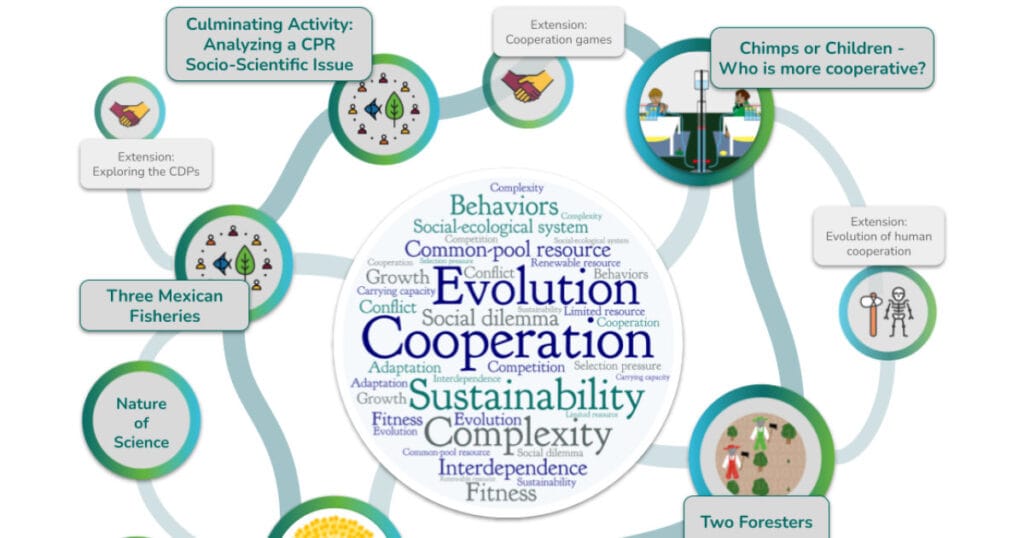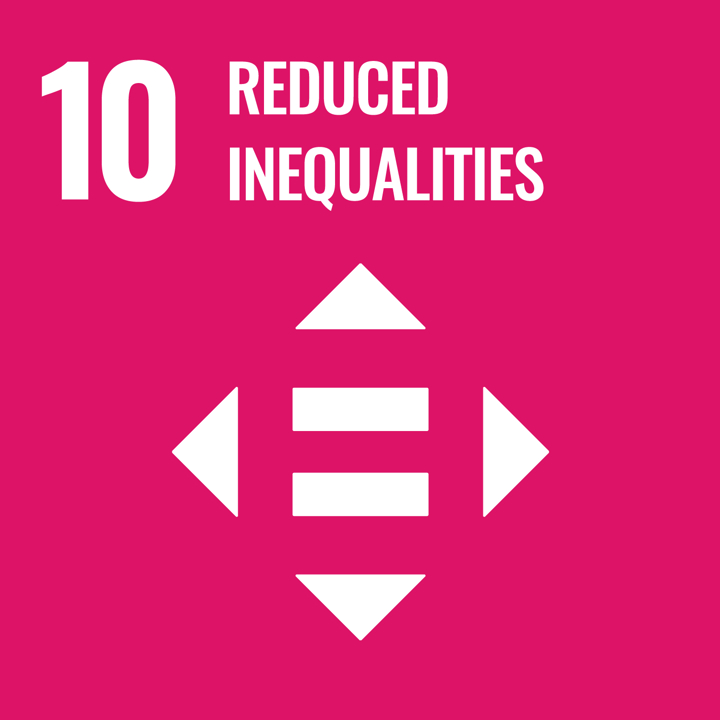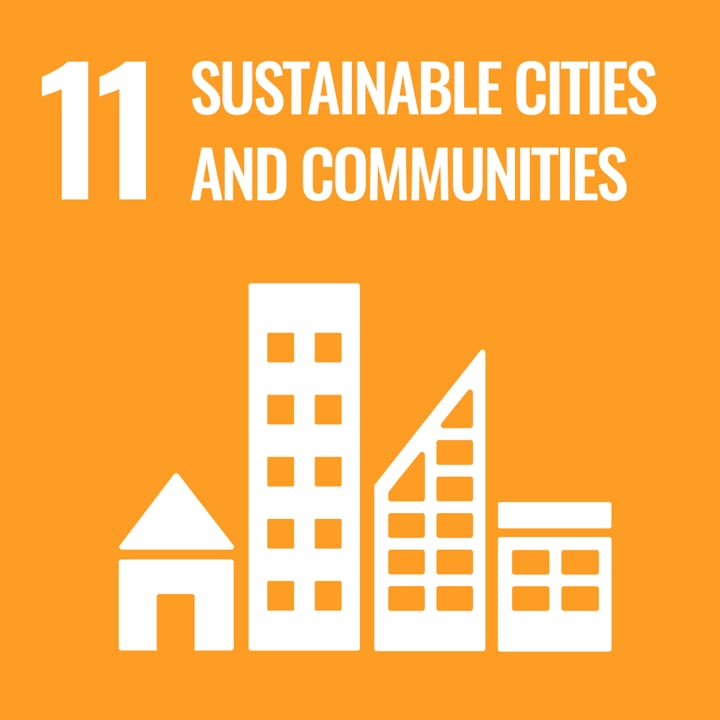
Utilizador final previsto: Professor
Grupo etário: Secundário superior
Currículo escolar: Science; Social & Environment Science; Business Studies
Temas e tópicos: Behaviour & Lifestyle; Collective Action; Environmental Change; Economics; Futures Thinking; Food and Agriculture
Duração: 5 x lessons, each 20 – 90 min; 1 x project 1.5 – 8 hrs; + 7 Further Extension resources, each 20 – 90 minutes.
Tipo de recurso: Game, Audio/Video, Lesson Plans, Simulation, Online Tool, Online Course, Workshop
Palavras-chave: Development of Behaviour, Systems Thinking, Complex Systems, Sustainable Resource Use, Cooperation, Deeper Learning, Digital Model
Línguas: Inglês, Alemão
Descrição
Sustainable resource management is often a matter of managing common-pool resources (CPR), i.e. social and material resources shared by groups of individuals. CPR can be prone to overuse through the competition between resource users who are motivated to maximize their resource use (or to contribute little to the maintenance of the resource) for individual gain and at the expense of group-level sustainability, an outcome known as the Tragedy of the Commons. CPR dilemmas are pervasive, not only in human contexts, but also across the non-human living world.
Exploring contexts across life in which evolution has favoured cooperative traits around shared resources can serve as fruitful lessons to help students gain a deeper understanding of the conditions and mechanisms that foster cooperation and sustainable resource use, and critically transfer these to a variety of socio-scientific issues.
Como utilizar este recurso
This collection of lesson plans includes 5 core lessons and 1 project:
- Chimps or children – who is better at sharing resources? – A comparative behavioural research experiment exploring the abilities of chimpanzees and of children to cooperate around a shared resource.
- NetLogo: Two Foresters – An interactive introduction into concepts of ecology, behavioural ecology, and sustainability with a computer simulation of a simple social-ecological system.
- NetLogo: Evolution and competition for forest resources – This NetLogo model builds on the model of Two Foresters. In this model, agents reproduce based on the amount of resources that they harvest.
- Life in groups and conflict resolution – A reading text about the challenges of life in groups and how groups across biology have found ways to solve these challenges.
- Three Mexican fisheries – Students compare the stories of three Mexican fishing villages to understand the factors that enabled some villages to sustainably manage their fishing resources, while others failed.
- Analysing social-ecological systems – In this project, students analyse a select real-world social-ecological system by looking at factors of the resource(s) and ecosystem, resource user behaviours, and governance, to develop.
Os recursos
The resources are part of the chapter Evolving cooperation and sustainability for common pool resources (Hanisch et al. 2023), published in the e-book Learning Evolution Through Socioscientific Issues (Sá-Pinto et al. 2023).
Resultados de aprendizagem (professores)
- Obter conhecimentos prévios e aprofundar o conhecimento e a compreensão dos conceitos-chave da Cidadania para a Sustentabilidade, desafiando as visões do mundo e os valores estabelecidos.
- Aplicar uma série de ferramentas e quadros adequados para promover a Cidadania para a Sustentabilidade dos estudantes
- Refletir sobre a prática e examinar os programas curriculares nacionais para identificar oportunidades de promover a Cidadania para a Sustentabilidade de forma interdisciplinar e envolver as partes interessadas externas.
- Sintetizar de forma colaborativa os conhecimentos, as ferramentas e os quadros para criar materiais didácticos e planos de aulas adaptados ao seu próprio contexto local
- Desenvolver e aplicar critérios de avaliação para avaliar a Cidadania para a Sustentabilidade nos alunos.
- Através de actividades de workshops e de comunidades de prática, desenvolver capacidades e agência enquanto educadores e líderes da Cidadania para a Sustentabilidade.
Competências verdes
- Incorporar valores sustentáveis: Valorizar a sustentabilidade; apoiar a equidade; promover a natureza
- Abraçar a complexidade na sustentabilidade: Pensamento sistémico; Pensamento crítico; Enquadramento de problemas
- Perspectivas de futuros sustentáveis: Literacia do futuro; Adaptabilidade; Pensamento exploratório
Creative Commons

OpenEvo is an educational innovation project from the Department of Comparative Cultural Psychology at the Max Planck Institute for Evolutionary Anthropology. We welcome inquiries about our resources, projects, and potential collaborations. If you find something of interest on the site, please feel free to contact our project lead, Dustin Eirdosh via e-mail.
ODS





